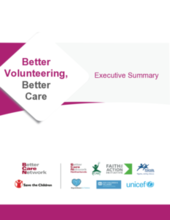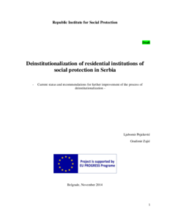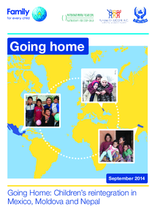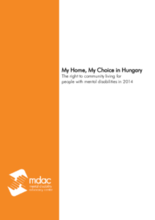Displaying 511 - 520 of 771
This study explores the prevalence and multilevel risk factors of 1,309 Israeli Arab and Jewish adolescents’ experiences of unwelcome sexual behaviors by peers in residential care settings (RCSs) for at-risk children.
This Excutive Summary is developed by the Better Volunteering Better Care
The video discusses the institutionalization of eight million children in Central and Eastern Europe following the fall of the Berlin Wall, and underscores that many of the children these orphanages have families.
This podcast is a presentation given by Kate Van Doore at the Interdisciplinary Conference on Human Trafficking held on October 9-11 2014 at the University of Nebraska.
This report gives an overview of implemented activities in the process of deinstitutionalization, identifying the main obstacles, effects, and achieved results. The overall objective of the report is to achieve greater understanding of the progress and shortcomings of the process of deinstitutionalization and transformation of social protection in Serbia, and to analyze relevant policies that will provide input for the creation of new measures for further support of the reform process of social protection in Serbia.
This paper presents the findings of an exploratory research study of foster care youth residing in group homes in a mid-Atlantic state in the USA.
This animated video, made for an Australian audience, illustrates the orphanage industry in Cambodia, particularly how Australian “voluntourists” unwittingly contribute to the exploitation and traumatization of children in orphanages.
This report from Family for Every Child and partners summarises research on children’s reintegration that took place in Mexico, Moldova and Nepal from 2011 to 2014.
Despite Hungary signing on to the UN Convention on the Rights of Persons with Disabilities (CRPD), there has been no significant change in the number of people with disabilities in Hungary who are placed in institutions. Mass institutionalisation continues to be the predominant form of care for people--including many children--with mental health issues and intellectual disabilities.
This report highlights the prevalence of different forms of violence against children. It is based on global figures and data from 190 countries.




